Practical Media Researching Tips

A strategic public relations (PR) agency or professional will prove invaluable in not only obtaining these opportunities, but also preparing you for these situations. Those going at it alone or those who want to do their own research, however, may find it useful to research media professionals independently. There are many reasons to do your due diligence before speaking with journalists/analysts/influencers/hosts including: knowing what type of questions they typically ask, what their affinities are toward certain subjects, how they typically "treat" guests, their body of work, their audience demographics and more.
The conversations that will happen between a source and someone with an abrasive, hard-nose approach will be much different than someone who is more mild-mannered and seemingly "on the same team." There are, of course, many personality types in between. As a source, however, you will not know what or who you are going to get until you do some research. Here are some practical ways to get started once you have secured an interview:
1. Turn to Social Media
An interview source would be hard pressed to find a journalist/influencer/podcast host and the like without active social media accounts. Connecting on social media prior to an interview can provide each party with additional information. On Twitter, for example, a source may notice the interviewer is passionate about any number of topics that can either help break the ice or give the source information on which topics to stay far away from. On LinkedIn, two people may have shared connections or notable work experience that relates to the upcoming conversation.While researching the person, go ahead and connect with them, follow them, etc., it will indicate to them that you are preparing (not stalking) for the interview. What's more, if you're using a social media management tool, you can start to see their posts within a feed you are already checking (hopefully daily).
Sources can also turn to tools like Buzzsumo (shown below) to research a journalist, influencer, etc., or Klout to do the same.

2. Review their Work
Chances are that your interviewer has done his or her research in preparing for the interview, including reading any relevant material you have published. Returning the favor, will give you an idea of the topics they frequently cover or have a basic/intermediate/advanced knowledge of. While their coverage could change over the years, knowing a little about what they have already worked on will provide a way to answer questions in a way that makes sense for not only the interviewer but also their audience. On the flip side, however, do not be surprised if basic questions are asked as they may be looking for background information or a way to relate the information to their audience.
3. Ask for Sample Questions
For whatever reason, there can be a level of awkwardness for sources asking for sample interview questions. Unless it is for a last-minute interview, a breaking news story or an investigative piece (when a whole other set of protocols apply), many reporters/analysts and similar professionals will not mind coming up with a few broad questions to help the source prepare in a high-level manner. While interviews can become pretty unauthentic when every question is given ahead of time and answers are rehearsed (the goal for most interviews is to have a relaxed and informative conversation), a source does not have to feel uncomfortable asking for sample questions nor should the interviewer be flabbergasted if they do. If this makes anyone uncomfortable, however, many times a look or listen at previous interviews can identify patterns of questions asked.
4. Know the Audience
At the end of the day, two parties are coming together to talk in order to share information with an audience. While "chemistry" between participants can turn a mundane interview into a great conversation (one that everyone benefits from), participants should all be working to provide relevant insights to the end-user. A source should research the publication/podcast/program's audience in order to phrase their answers with the audience in mind. For example, is a software executive talking to prospective clients when being interviewed, are they talking to their peers or both? Their insights should be very different based on that answer. Further, are those prospective clients within their market (with small, medium or enterprise-level companies)? Another example could be a retailer speaking with a trade magazine versus a consumer magazine and the list goes on. There are multiple audience research paths starting with consuming the material yourself (reading, watching, listening to not just the interviewer's content but their colleagues as well). Additionally, sources can use a tool like Similarsites to compare the interviewer's website with their competitors to gain insights into what other companies are like theirs.

Speaking of websites, it will be helpful to know ballpark figures of the website's audience as, if all goes well, they could send a flood of traffic to your site (and you better be prepared or risk downtime).

What's more, one of the most traditional audience research methods is the publication's media kit, which often details audience demographic information and reach for prospective advertisers but can be useful to those working with the company in other ways too.
If your company uses any competitive research tools like SEMrush those could prove helpful here too as can social listening tools, Google Alerts and more to understand what kind of chatter is occurring around this media entity.
If this all sounds like a lot of work, it can be if in-depth media research is conducted on a person's own time. When working with a PR professional or agency, they will often have existing relationships with media types and be able to provide insights not available on the Web. This list, however, is a good place to start or to complement the efforts of your PR reps.
+ This article is a complementary piece to our "Podcast Confessionals" commentary in the upcoming August issue of Website Magazine. Make sure to subscribe here to get the latest issues in your inbox or mailbox!
+ Also, if you are interested in getting in touch with a Website Magazine editor about a story idea, email us at editors@websitemagazine.com.









